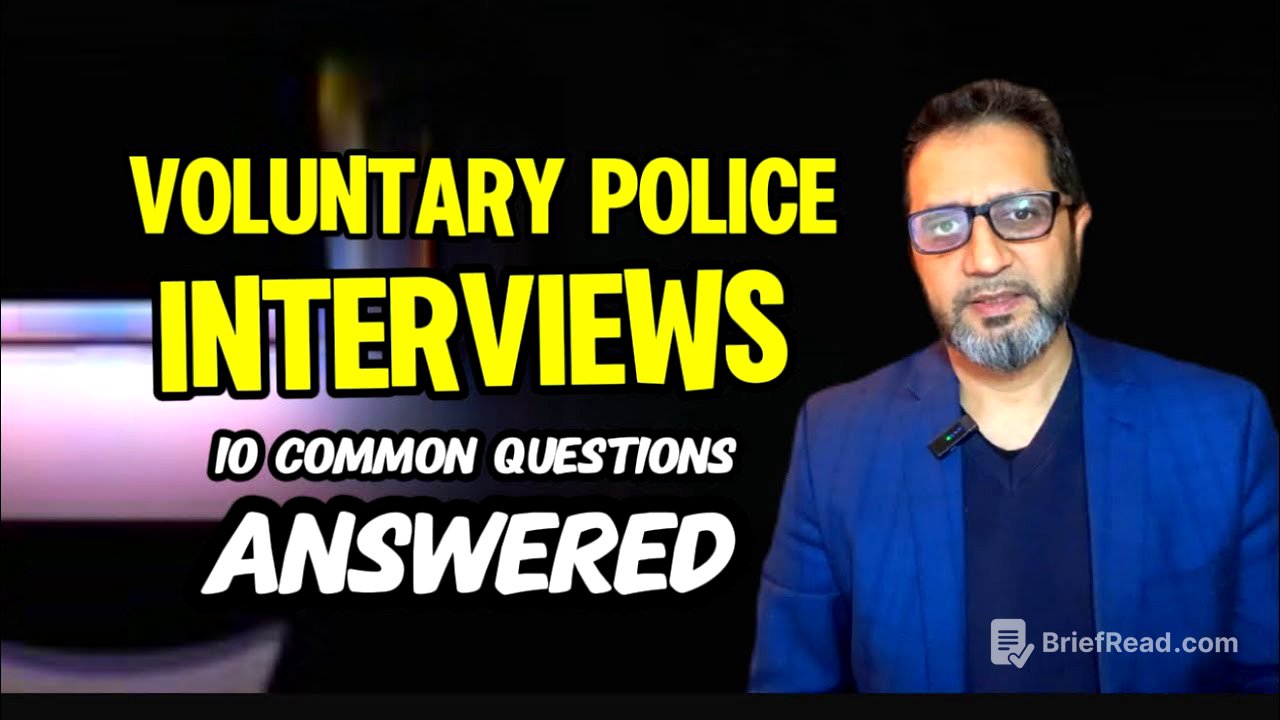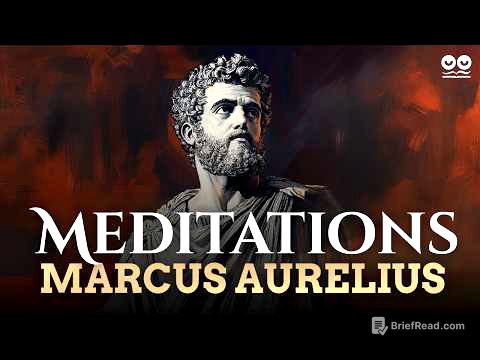TLDR;
This video provides essential information about voluntary police interviews in the UK, addressing common questions and concerns. It emphasises that while these interviews are conducted by arrangement and without arrest, they are serious legal processes with potential consequences. Key takeaways include the importance of seeking legal advice, understanding your rights, and being aware of the possible outcomes following the interview.
- Voluntary police interviews are formal and serious, despite being "voluntary".
- You have the same rights as if you were arrested, including the right to free legal advice.
- The police may arrest you during or after a voluntary interview.
- It's crucial to seek legal advice before attending and to understand the potential outcomes.
What is a Voluntary Police Interview? [1:19]
A voluntary police interview involves attending an interview under caution by arrangement, rather than being arrested. These interviews typically occur at a police station, but can also take place at your home, workplace, or council offices. The key aspects are that your attendance is voluntary as part of a police investigation into a suspected crime, and the interview is recorded, either with audio or both audio and video. The police consider you a suspect, not just a witness, so it's a formal investigative process, not an informal chat. Cooperating in a voluntary interview does not guarantee favourable treatment.
How Do the Police Contact You? [2:58]
The police usually arrange voluntary interviews by calling you, sending a letter, or leaving a note at your home. If contacted, treat the invitation seriously and contact your lawyer immediately. Your lawyer should check with the police about the potential consequences of not attending. Avoid offering unnecessary information to the police, as anything you say can be used against you. It's best to let your lawyer handle the communication.
Why Voluntary Interview Instead of Arrest? [4:17]
The police may ask you to attend a voluntary interview for several reasons. They might not have enough evidence to arrest you, or they may not be able to satisfy the necessity criteria for an arrest. Additionally, voluntary interviews are more cost-effective and time-efficient for the police. From your perspective, attending by arrangement is less embarrassing than being arrested at home.
What Happens If You Don't Attend? [5:27]
If you don't attend a voluntary police interview, the police have two options: arrest you or do nothing. The decision depends on whether they can satisfy the reasonable grounds for suspicion and the necessity criteria for arrest. Refusing to attend isn't risk-free, as it may prompt the police to arrest you. Your lawyer can clarify your position with the police and advise you on whether your refusal would likely lead to arrest or if the matter might be dropped. Attending might resolve the matter quickly, demonstrate cooperation, and avoid arrest, but you risk saying something that could harm your case.
Do Your Rights Differ From Being Arrested? [8:13]
No, your rights are the same whether you attend voluntarily or are arrested, including the right to free legal advice and a copy of the police code of practice. However, there's a significant difference: if arrested, you're taken into police custody and your movements are controlled, whereas as a volunteer, you're free to leave unless arrested. Despite this, treat a voluntary interview with the same seriousness as if you were arrested.
Can You Be Arrested at a Voluntary Interview? [9:06]
Yes, you can be arrested during or after a voluntary police interview. The police might arrest you if they believe you're about to leave, new evidence has emerged, they need to protect others, progress their investigations, carry out a house search, or take fingerprints or DNA samples that can't be done voluntarily. It's crucial to have your lawyer present to advise you and check with the police beforehand whether you will be arrested.
Why Arrest After Turning Up Voluntarily? [9:20]
Even if you attend a voluntary police interview by arrangement, it's not automatically the case that you will be arrested, but it's always a possibility. The police might decide to arrest you as soon as you walk through the door of the police station, or during the interview under caution, or even after the police interview. The more serious the offence, the higher the likelihood of arrest, especially if you want to leave.
Should You Bring a Lawyer? [11:04]
Yes, always bring your lawyer to a voluntary police interview. You have a right to free legal advice. Your lawyer will ensure you understand the allegation, explain the suspected offence, assess the evidence, advise you on your defence, explain the caution, and advise you whether to answer questions or remain silent. Your lawyer might advise you to remain silent if it's in your best interests, and it's your decision whether to talk or not.
What Happens in the Police Interview? [12:23]
At the beginning of the police interview, you will be cautioned. The caution states that you do not have to say anything, but it may harm your defence if you do not mention when questioned something you later rely on in court, and anything you do say may be given in evidence.
Possible Outcomes After the Interview [12:50]
After a voluntary police interview, several outcomes are possible. These include no further action (NFA) if there's insufficient evidence, an out-of-court disposal such as a caution, charges leading to a court hearing, or further investigations. Your lawyer can help you understand the likely outcome and advocate for the best result, such as no further action.









